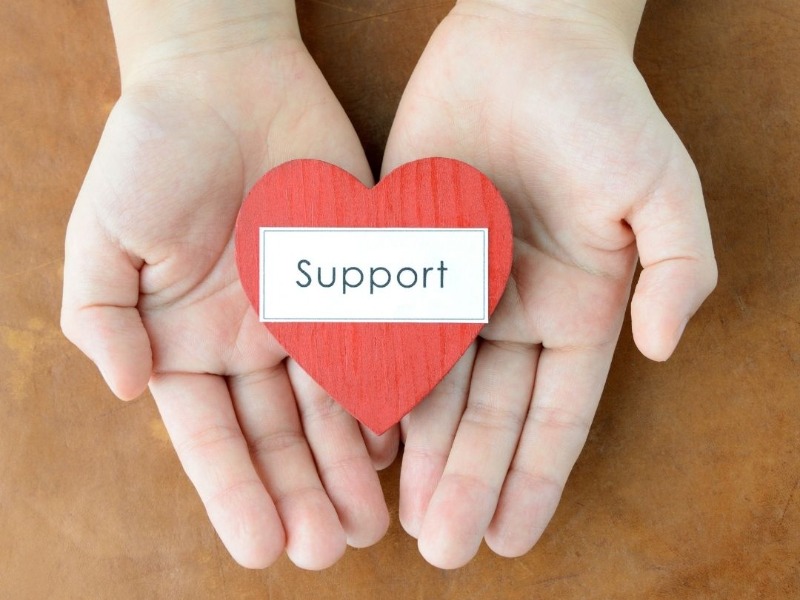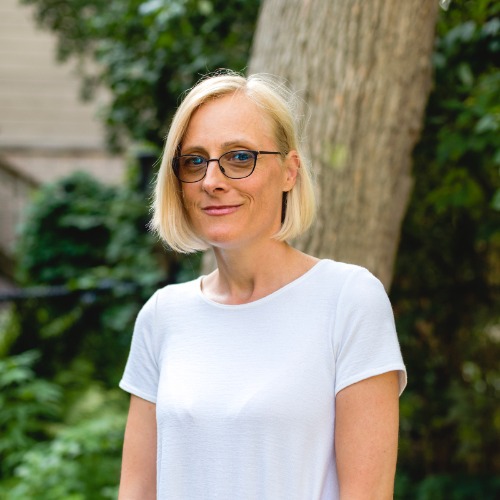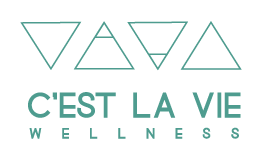The Four Pillars of Grief Support

by Karen Omand, Certified Thanatologist
Grief Support
When I see a new client one of the things I am always asking is what is your support system like? As a Certified Thanatologist, I know the importance of a good support system and how vital it is when you are grieving from a death loss or a non-death loss. We all need a balanced support system when we are grieving to help us navigate the very tough world of grief and loss.
A Balanced Grief Support System
When it comes to grief support, we use a 4 pillar analogy. Each pillar is important and helps in giving a balanced support.
- First Pillar of Grief Support: Your Loved Ones.
You need strong support from friends and family. They are the ones who know you the best and can help validate your emotions and be with you when you are grieving. - Second Pillar of Grief Support: Professional Support.
Some of you may need to see a professional in your grief. You may need more than just friends and family. Sometimes the grief is more complicated, and you need help understanding yourself and symptoms better. At other times, the family and friend support has diminished and you are in need. Remember grief has no timeline and everyone’s grief journey is different. - Third Pillar of Support: Your Peers.
Peer support when you are grieving can be very beneficial. No one understands your grief better than others who are or have gone through something similar. There are many shifts that happen in a death loss and non-death loss. You may need to find some people that truly understand what you are going through. - Fourth Pillar of Support: Self-Care.
This pillar is often neglected but so important. Taking the time for self-care and self-growth may help ensure you stay physically, mentally, and emotionally healthy. Self-care can be from reading books about your loss, or journaling. Looking after yourself when you are grieving means eating healthy, staying hydrated, trying to get some good rest. I often have to remind grievers that they matter and it is essential to be gentle with their own self.
Grief Support for Your Loved Ones
- Say Something: Saying nothing may just increase the awkwardness of the moment. It really is you who is uncomfortable with their emotions and pain of grief. Saying a few words is enough to show you care.
- Do Not Speak Too Much: Say a few word but really take the time to just to listen. They just need to know you are there for them.
- Do Not Say You Fully Understand: Yes you may have had similar losses but everyone’s relationship is unique and different. Do not make it about your loss especially in acute grief.
- Keep Checking: Grievers can sometimes hide away and not want to talk to people. Know this can be normal but as a good friend or family member keep checking in on them.
- Choose Your Words Carefully: Do not use the word closure, there is no closure in grief. Everyone’s grieving journey is different. Just validate how they feel. Don’t try to find solutions.
- Share Stories: Grievers like to hear stories of their loved ones so feel free to share any memories with them.
- Give A Hug: The need for hugs and warmth is so vital to people who are struggling with grief. Don’t be afraid to hold their hand, put an arm around their shoulder or ask them if they want a hug.
Need Help?
Remember the second pillar? Seeking professional help can go a long way towards easing your grief journey. If you would like to learn more about how I can help, book a free 15-minute chat. I am here to support you.

The losses in my life, both death and non-death, have led me to become a Thanatologist (Grief Counselor). I specialize in helping those who have lost loved ones, as well as, those who have experienced non-death losses such as, divorce, infertility, chronic illness, and job loss, to name a few.
